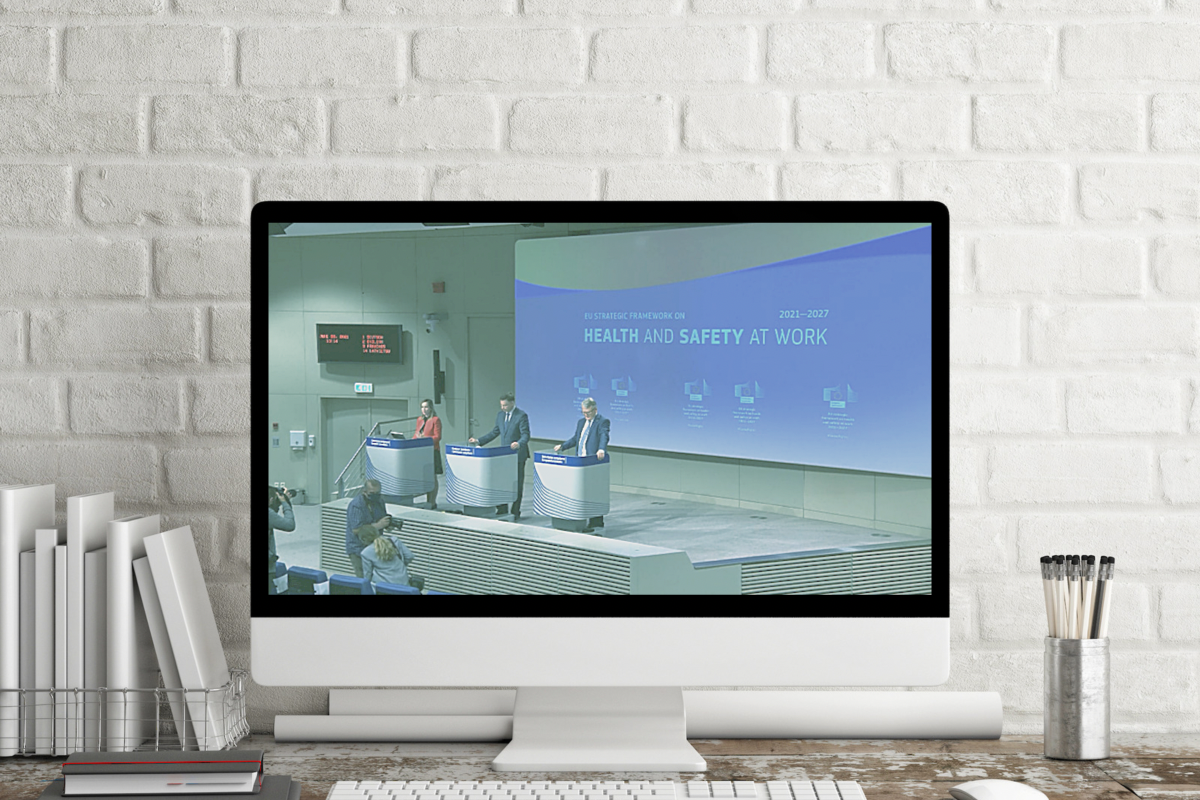
Necessary action absent in new Commission strategy on health & safety
The necessary action was lacking when on 28 June the European Commission Vice President Dombrovskis and Commissioner Schmit presented the new Occupational Health & Safety Strategic Framework 2021-2027 at a press conference in Brussels.

The strategic framework lays out the actions of the European Commission for the years 2021-2027 and contains both own actions from the Commission's side as well as recommendations to member states and stakeholders.
Eurocadres has been pushing for a legislative initiative on psychosocial risks at work, work organisation, violence and harassment at work. In November last year the Commission published a roadmap of its initiative to which Eurocadres provided feedback, criticising the lack of "references to work organisation, and combatting psychosocial risks, violence and harassment which must take a central place in the upcoming strategy."
Mental health initiative
The new strategic framework does contain an initiative on mental health at work, but it is mentioned that it is a non-legislative initiative.
The strategic framework has three key objectives:
• anticipating and managing change in the new world of work brought about by the green, digital and demographic transitions;
• improving prevention of workplace accidents and illnesses;
• increasing preparedness for any potential future health crises.
–A non-legislative initiative is insufficient. We've had decades of soft law, campaigns, best practice, tools and guidelines. It clearly is not working. At the same time know that 89% of employers deal manage health and safety because the law requires it. A new directive would kick off action in all member states and action is what is needed, says Martin Jefflén, President of Eurocadres.
A non-legislative initiative is insufficient. We've had decades of soft law, campaigns, best practice, tools and guidelines. It clearly is not working.
An excerpt of the highlights in the strategic framework from Eurocadres’ perspective, the Commission will:
- Modernise the OSH legislative framework related to digitalisation by reviewing the Workplaces Directive and the Display Screen Equipment Directive by 2023;
… - Launch an “EU-OSHA healthy workplaces campaign” 2023-2025 on creating a safe and healthy digital future covering psychosocial and ergonomic risks in particular.
- In cooperation with Member States and social partners, prepare a non-legislative EU-level initiative related to mental health at work that assesses emerging issues related to workers’ mental health and puts forward guidance for action before the end of 2022.
- Develop the analytical basis, e-tools and guidance for risk assessments related to green and digital jobs and processes, including in particular psychosocial and ergonomic risks.
- Ask the expert panel on effective ways of investing in health, to deliver an opinion on supporting the mental health of healthcare workers and other essential workers by the end of 2021.
- Ensure appropriate follow-up to the European Parliament Resolution on the right to disconnect.
Correct analysis but lacking in action
The document describes the challenges, mentioning for example that already "before the pandemic, mental health problems affected about 84 million people in the EU. Half of EU workers consider stress to be common in their workplace, and stress contributes to around half of all lost working days. Nearly 80% of managers are concerned about work-related stress."
The Strategic Framework got a rather lukewarm welcoming also from the European Trade Union Confederation (ETUC) which pointed to the absence of legislative initiatives on mental health and musculoskeletal disorders – whereas workers really need a Directive on both of these.
Commenting on the new strategy European Trade Union Confederation (ETUC) Deputy General Secretary Esther Lynch said
–The Commission haven’t followed good intentions with sufficient action. Warm words aren’t good enough when the number of workplace accidents are rising and more than 100,000 people die each year of work-related cancer and ergonomic and psychosocial risks are on the rise. We need stronger rules and proper enforcement to ensure everyone can go to work with confidence they will actually get home safely.”
That a legislative initiative is not included in the new strategic framework of course does not rule out the possibility to still propose one. We will continue to push for it.
Eurocadres is jointly with ETUC and several other trade union and civil society organisations running the campaign platform EndStress.EU which advocates for legislation to tackle the stress epidemic, a new EU directive which addresses psychosocial risks, violence and harassment and improves work organisation.
–That a legislative initiative is not included in the new strategic framework of course does not rule out the possibility to still propose one. We will continue to push for it. That the Commission has understood the magnitude of the problem is good news. Now we just need to make sure to get across that the tool we need to combat the stress epidemic is a modern piece of legislation to kick off the necessary processes in the member states, Martin Jefflén concludes.
